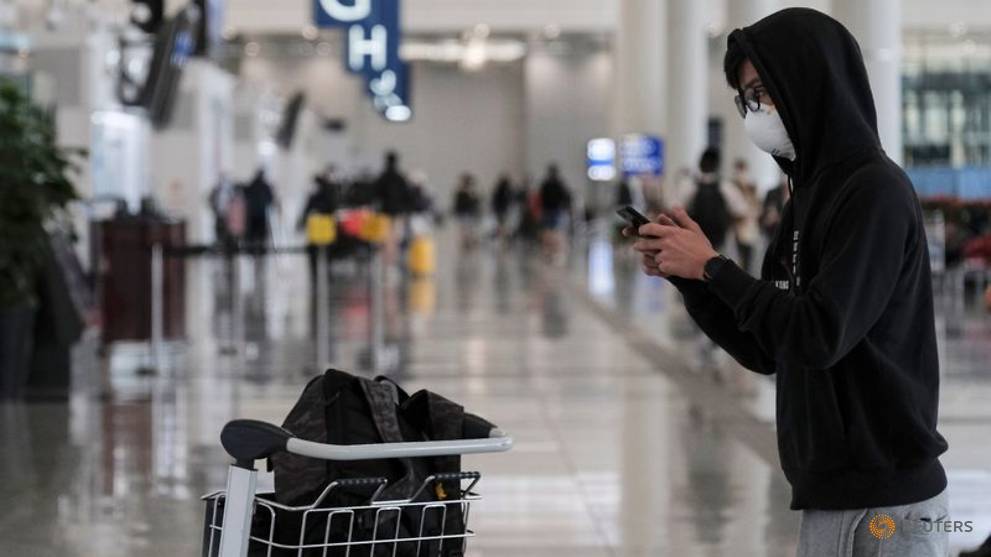
HONG KONG: Hong Kong prison authorities rejected criticism of "modern slavery" on Tuesday (Mar 10) as female inmates started working night shifts to produce millions of face masks after the fast-spreading coronavirus triggered shortages.
Inmates at the Lo Wu prison have complained about their health and low pay after monthly production for government agencies was doubled to 2.5 million masks amid surging demand, said lawmaker Shiu Ka-chun who met with the prisoners.
Advertisement
Advertisement
"This is an exploitation and another form of modern slavery," said Shiu, a former social worker who has been campaigning for prisoners' rights.
Prison officials defended the decision on Tuesday.
"All persons in custody participating in the night shift are on a voluntary basis," said a spokeswoman at the Hong Kong's Correctional Services Department, which oversees prisons.
"If they found themselves not adaptable to the night shift work, they may approach the management at any time," she told the Thomson Reuters Foundation in emailed comments.
Advertisement
Advertisement
More than 114,000 people have been infected by the COVID-19 coronavirus globally and over 4,000 have died since it emerged in China in December, sparking a rush for face masks even as health officials have said healthy people do not need them.
READ: China has no new local COVID-19 cases outside Hubei for third day
Across Asia, the spread of the flu-like virus has sparked a run on masks, with some hospitals struggling to procure enough for their staff, leading to rationing and arrests for hoarding.
READ: Indonesian surgical mask manufacturers raise production amid COVID-19 fears
READ: Jakarta police tracking down mastermind behind illegal surgical mask factory
With round-the-clock production, female prisoners, often working night shifts, earn about HK$800 (US$103) a month, Shiu said, which he said compared poorly to Hong Kong's minimum wage of HK$37.50 per hour.
"This is not an incentive payment – this is a disincentive," said Shiu, himself a prison laborer when he was jailed for five months last year over his role in Hong Kong's Read More – Source

HONG KONG: Hong Kong prison authorities rejected criticism of "modern slavery" on Tuesday (Mar 10) as female inmates started working night shifts to produce millions of face masks after the fast-spreading coronavirus triggered shortages.
Inmates at the Lo Wu prison have complained about their health and low pay after monthly production for government agencies was doubled to 2.5 million masks amid surging demand, said lawmaker Shiu Ka-chun who met with the prisoners.
Advertisement
Advertisement
"This is an exploitation and another form of modern slavery," said Shiu, a former social worker who has been campaigning for prisoners' rights.
Prison officials defended the decision on Tuesday.
"All persons in custody participating in the night shift are on a voluntary basis," said a spokeswoman at the Hong Kong's Correctional Services Department, which oversees prisons.
"If they found themselves not adaptable to the night shift work, they may approach the management at any time," she told the Thomson Reuters Foundation in emailed comments.
Advertisement
Advertisement
More than 114,000 people have been infected by the COVID-19 coronavirus globally and over 4,000 have died since it emerged in China in December, sparking a rush for face masks even as health officials have said healthy people do not need them.
READ: China has no new local COVID-19 cases outside Hubei for third day
Across Asia, the spread of the flu-like virus has sparked a run on masks, with some hospitals struggling to procure enough for their staff, leading to rationing and arrests for hoarding.
READ: Indonesian surgical mask manufacturers raise production amid COVID-19 fears
READ: Jakarta police tracking down mastermind behind illegal surgical mask factory
With round-the-clock production, female prisoners, often working night shifts, earn about HK$800 (US$103) a month, Shiu said, which he said compared poorly to Hong Kong's minimum wage of HK$37.50 per hour.
"This is not an incentive payment – this is a disincentive," said Shiu, himself a prison laborer when he was jailed for five months last year over his role in Hong Kong's Read More – Source











